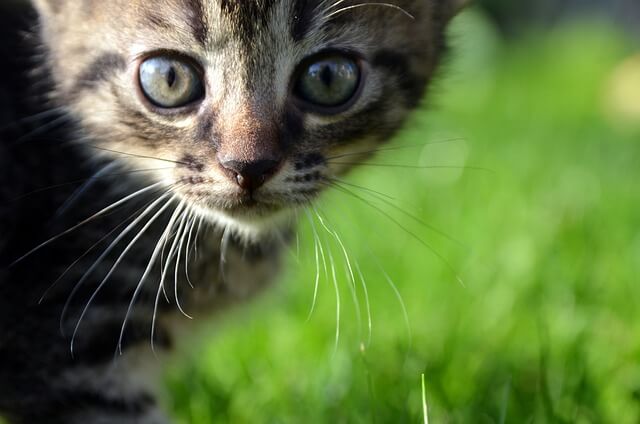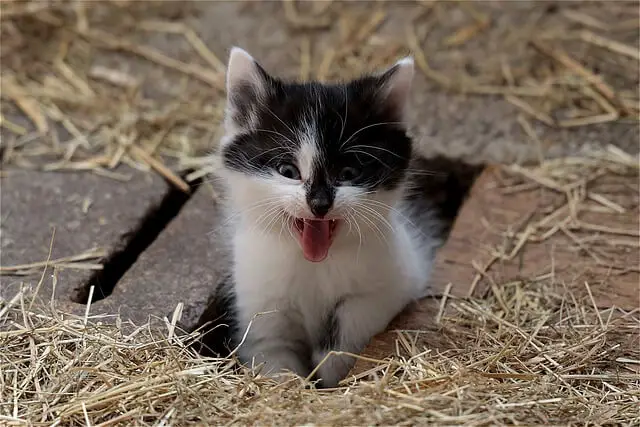Cat Bite By Snake - What Should You Do?
26.10.2022.
If your cat spends most of her time outdoors, some dangers can threaten her. Snake bites in cats don't occur that often compared to dogs, but they can still happen. So if you live in areas where snakes can be found, you will want to be extra careful and protect your cat from snakes.
Since there are venomous and non-venomous types of snakes in the world, if a snake bite occurs, recovery will depend on many different factors that we will explain later. Firstly, let's take a look at what exactly is a snake bite.
Why do snake bites occur?
As you may know, there are many types of snakes – some are venomous, and some are non-venomous. Many cat owners think a snake bite from a non-venomous snake will not do anything to their cat. They are wrong, and just because there is no venom, a snake bite can still cause health problems for your cat.
Snakes are considered prey from the aspect of a cat, and if your cat sees one, she will most probably approach and even hunt and attack. Since snakes will only attack if they feel threatened or provoked, they will bite the cat in most cases if they find themselves near the cat.
RELATED: 8 Ways To Keep Your Cat Happy & Satisfied
Symptoms of a snake bite in cats
If you are worried that your cat has been bitten by a snake, there are symptoms you need to watch out for. Some snake bites can occur, and you will not be able to locate them or see them, especially if you own a longhaired cat breed.
Here are the symptoms of snake bites:
- Bleeding
- Swelling
- Diarrhea
- Vomiting
- Lethargy
- General weakness
- Stumbling
- Blood in cats' urine
- Paralysis
- Coma

Diagnosis
Every snake bite should be treated as venomous. After the bite occurs, you should rush to the nearest clinic. Keep the cat calm, and you can try to pressure wrap the area of the bite (if you know where the bite occurred).
Your vet will for sure ask you some questions to determine how this happened and determine if the bite is from a venomous or non-venomous snake. If you saw the snake try to remember as much information as possible.
From there, your vet will instruct you on your next moves.
RELATED: Your Cat Bite You? Here Are The Most Common Reasons
Snake bite in cats treatment
Treatment will, in most cases, depend if they treat venomous or non-venomous bites.
For the non-venomous bite, the bite area should be thoroughly cleaned, and your cat could receive some antibiotics and anti-inflammatories.
In case of a venomous bite, your cat will be hospitalized, and IV fluids can be administered. Your vet could give her oxygen supplementation if she has trouble breathing. Your cat will receive antivenom and also proper antibiotics.
Your cat will need to be in the clinic for at least 48 hours so vets can monitor her health and watch for the development of any new symptoms.

RELATED: How To Train Your Cat: Expert Tips & Tricks
Recovery
The way to successful recovery is through acting fast. From the moment a snake bite occurs, you must rush to the nearest clinic to help your cat. If the antivenom is administered fast, most cats will recover within 48 hours.
After that period, if there are no new symptoms, your cat will get permission to go home, and you have to watch your cat and monitor her health. Give your cat all the medication your vet has prescribed.
IMPORTANT: If the cat doesn't receive proper treatment fast as possible after the snake bite occurs, the bite will be fatal.
How to prevent snake bite in cats
The best prevention from snake bites is to limit your cat's movement outdoors, especially if you live in areas where snakes can be found. It is advised to keep your cat indoors, and when you go out, you can get a nice leash and harness. That way, you can be sure that your cat will be near you, and you can monitor everything that happens around you.
World Cat Finder Team







Share